In Search of The Tipping Point: Tears For Fears talk to SDE
Roland and Curt discuss the story behind their new album
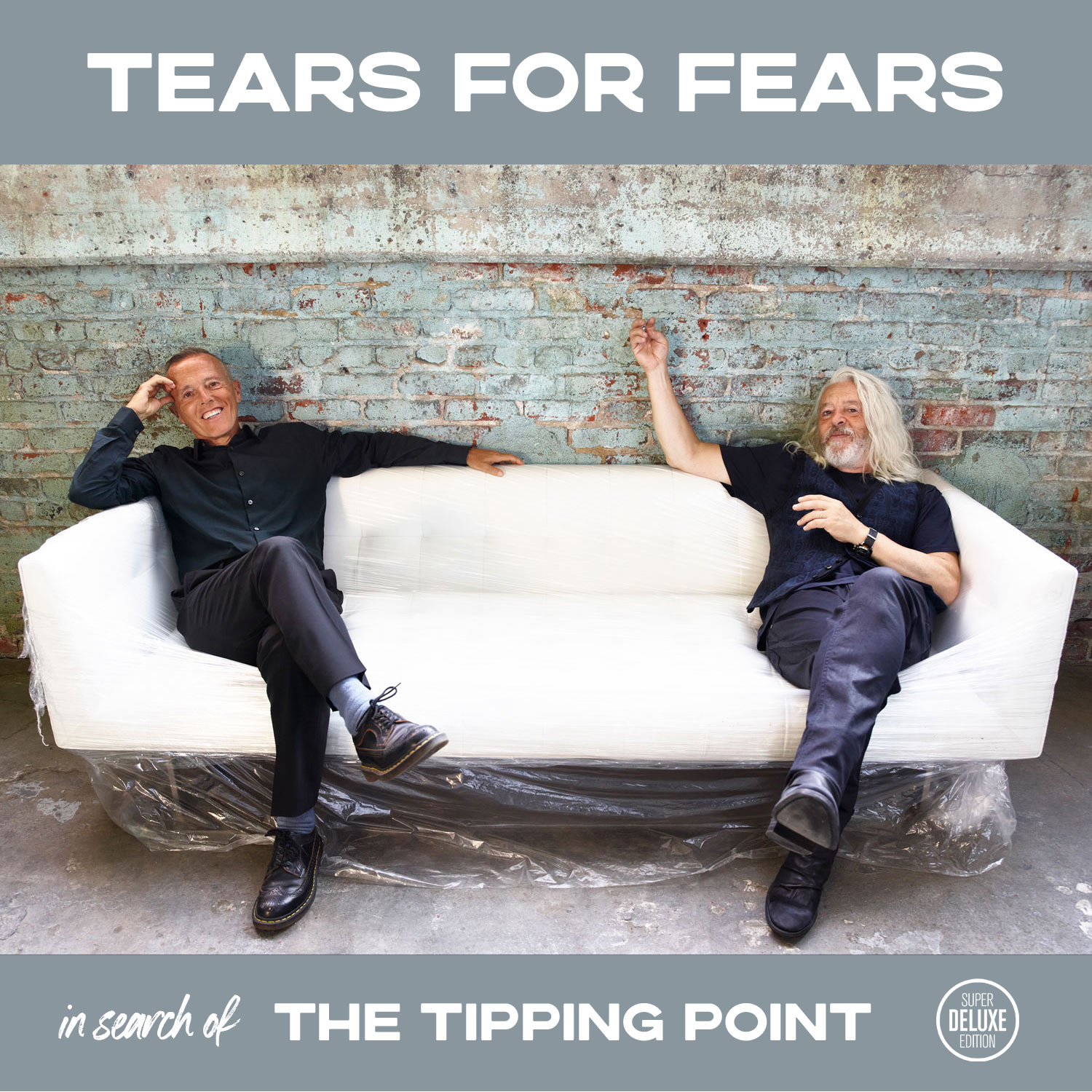
The Tipping Point is the second Tears For Fears studio album, post the original 1980s era, to feature both Roland Orzabal and Curt Smith. The first was 2004’s Everybody Loves A Happy Ending, so it’s been a while coming. Here, Roland and Curt discuss the genesis of the album and their long-running partnership…
Roland Orzabal: The previous album, Everybody Loves A Happy Ending, was a happy period. We weren’t sure about getting back together again – whether it would work or how comfortable we’d be and how creative it was. But we worked with Charlton Pettus, who Curt had collaborated with previously, and we found that between the three of us there was an incredible balance. Charlton could modulate us, he could interpret us and it worked extremely well. Pretty much the entire narrative of that album was just about us getting back together hence the gag: ‘Everybody Loves A Happy Ending’.
With that reunion album under their belt, neither Roland nor Curt were in any particular rush to follow it up. Instead, they played live, primarily in the US, Asia and Australia. These were often short spells on the road, rather than year-long global slogs, with Tears For Fears playing vineyards, summer festivals and often happy to share the bill, or offer a supporting role, to bands like Hall & Oates and Spandau Ballet. Life was good.
Curt Smith: The touring side was becoming successful for us. We knew we were getting really good live, our band was coming together to the point where we finally got to this setup that we have now, which is Charlton Pettus playing guitar, Doug Petty on keyboards, [vocalist] Carina Round and Jamie Wollam, our drummer. Once we got that bunch of people together, it all just gelled. So, we were actually enjoying playing live more because we enjoyed playing with these people. Not only playing with them, but they’re the easiest people to tour with and are enjoyable to be around, which has not always been the case.
Roland: Plus, when you play live, you’re not dealing with record companies. It’s simple. It’s a direct transaction.
Curt: Because we were getting better at it, and enjoying it more, that’s what we were concentrating on. We didn’t do lots of it, it’s not like we were on tour all year – we were doing something like six weeks at a time and then going home. We both had kids that we were bringing up at the time, so we didn’t want to be away for too long.
While they both enjoyed this work-life balance, Roland and Curt recognised, as time passed, that there was a danger of things getting a little stale.
Curt: It did get to a point, maybe seven or eight years ago, where we were playing the same sort of set all the time – not exactly the same, but we didn’t have new music. It was getting a little boring, and the only way to liven that up would be to maybe make some new music. That’s when the discussion started about us making a new record together. I wouldn’t have been unhappy to see out my days playing the hits, but it just wouldn’t have been quite as gratifying. You end up turning into an actor more than a musician because you’re just going through the motions. You know your lines, you know your parts, you know everything and you’ve just got to go on and perform them each night. The longer you do that, the harder it is for it to feel genuine. And I thought that adding something new would bring some freshness to it.
The pair decided to get to work on writing and recording some new songs, but rather than just letting them get on with it, their management (at the time) had other ideas and suggested that Roland and Curt tried songwriting and producing with younger artists, in an attempt to write ‘commercial’ songs that would – in theory – resonate with a younger audience and help them make an impact in this modern era of streaming and playlists. Roland calls this process ‘speed dating’ and it led the band down a creative cul-de-sac which would ultimately threaten not only the new album, but Roland and Curt’s union.
Roland: God bless him, but I sometimes wonder whether our manager was actually a fan of ours. Especially after he walked in on us at Charlton’s [studio] and said, “You’re not going to get this record done, with Charlton, in this studio”. So, that’s when we were sucked into the ‘speed dating’ way of writing.
Some might suggest that a band who enjoyed two consecutive number one singles in America in the 1980s (‘Everybody Wants to Rule The World’ and ‘Shout’) both taken from a number one album [Songs From The Big Chair] don’t need lessons from youngsters when it comes to writing hits. But Curt and Roland were open and humble enough to give it a go and not reject the idea outright.
Roland: We were willing to do it, because there’s an element of self-doubt in everyone. And to be honest with you, back then, we were searching for a direction. We met some good people. We always came away with something.
Curt: It may have worked and we did find one good relationship with Sacha Skarbek [British songwriter/producer who has worked with James Blunt, Adele, Lana Del Rey, amongst others], who we ended up working with on The Tipping Point.
When you are playing live, you’re not dealing with record companies. It’s a direct transaction.
Roland Orzabal
In 2017, the year Tears For Fears triumphantly played an emotional homecoming show at London’s Royal Albert Hall, Universal Music released a greatest hits called Rule The World. This contained the first new material from the band in over a decade.
Roland: We had a finished album, of 12 songs, which our manager decided wasn’t right for Warner Brothers [a deal had been signed]. He said we should go back to Universal who have our back catalogue. So, that was the idea. We had to buy the album off Warner Brothers and Universal Music took two songs off it – ‘I Love You But I’m Lost’ and ‘Stay’ – and put out the greatest hits, with the idea that once the greatest hits was out they would then release the album. Luckily, they didn’t; but at the time it felt a bit weird, like a cruel Universal trick. The deal [for the album] hadn’t been done, so they had no obligation to do it.
So, that left us with a slightly depleted album. I took time away, and during that period, we listened to what we had and fell out of love with it. When we amassed everything we’d done, we had around 12 attempts at a modern hit single. Some of them are great, but that didn’t make it a Tears For Fears album, and it wouldn’t have done anything. People want ‘the story’. People want to see a clear emotional core.
Curt: We don’t really care about making a commercial record, I don’t think, it just so happens that what we like is sometimes commercial. The depth of the music is equally as important for us. As I’ve said, many times before, if you look back at albums we’ve done, for the time, those songs weren’t obviously commercial. ‘Mad World’ wasn’t obviously commercial; ‘Sowing the Seeds of Love’ wasn’t obviously commercial. Yes, they became hits, but they didn’t sound like anything else that was out at the time. And I think you have to embrace that. I think that the only way a Tears For Fears record can be made is for us to do it ourselves, because the essence of it is what me and Roland agree on. If there’s another person involved, which can help, then it needs to be someone who understands us, someone who knows how to deal with both of us, not just one of us, because we’re very different. That is the case with both Sacha [Skarbek] and Charlton [Pettus].
We don’t really care about making a commercial record
Curt Smith
‘I Love You But I’m Lost’ is notably absent from The Tipping Point (“I like it”, says Roland. “It’s one of the songs we didn’t agree on,” offers Curt, diplomatically) but ‘Stay’ does make the cut and Curt Smith admits that this song is about him contemplating walking away from Tears For Fears for a second time.
Curt: We were doing this album, the ‘broken album’ as Roland calls it, and I didn’t like it. In particular, I didn’t think it had a narrative, a flow, and it was all very much one thing. And you get to that point where you ask yourself “Can I really do this?”. For me, first and foremost, it’s always about your mental and physical health, and I just wasn’t enjoying it. I don’t want this ever to just become a job, because I think that takes away from what music has given me, over the years, which is an outlet. If you’re doing it just for the sake of doing it, it demeans the music. So, I was at the point where I wasn’t happy with it and Roland was actually quite liking it. Our manager liked it, but wanted something more like that. And I was sort of stuck and no one was understanding where I was coming from. If I had left, it would have been a painful decision, because Tears For Fears has been part of my life, and Roland has been part of my life, for a very long time. So the song ‘Stay’ is really about that. It was a very sad time for me.
Despite this unhappy situation, the two men didn’t sit down and have a much-needed heart-to-heart. Communication between the LA-based Curt and Roland, who was primarily in the UK, was less than ideal at the time.
Roland: Curt’s feelings got a little bit filtered through the manager, but I was getting the distinct impression that he wasn’t happy. Sometimes it’s hard; we don’t share quite as much information as we should. And so, it was like, “Okay, I didn’t realise that…”.
Curt: I think that our manager enjoyed putting himself between us. He enjoyed being the broker and the one that we both talked to, privately. He then had control over what information he fed both of us, and it wasn’t a very healthy situation. But eventually, once we decided to part ways with him, we sat down and worked it out ourselves. Weirdly enough, coming to the understanding that our management wasn’t going to work out for us was the best thing that could have happened. That break-up allowed us to finish the album.
Both Roland and Curt agree that The Tipping Point’s opener, ‘No Small Thing’ was the song that got things back on track, and enabled the two men to put the ‘broken’ album behind them and work together productively while feeling excited about a fresh approach and a new direction.
Roland: None of those original [‘speed dating’] tracks got anywhere near this new album.
Curt: The record we first finished, I couldn’t listen to. That was the problem. I listened to it and I was exhausted by the end of it. It didn’t tell me a story; it didn’t make me feel good – it made me feel angry! [laughs]. And I don’t like that feeling. You know, I prefer more calm. But then that’s the balance between the two of us. Roland is more intense, and that has its place, and I tend to be more introspective and quiet. And somewhere in the middle is where you get Tears For Fears.
Roland: When we got together in early 2020, just before the pandemic kicked off, we were searching for where to go. We sat down with acoustic guitars in Curt’s house – for the first time since we were about 18 – and Curt came up with this riff, and then we were off, with ‘No Small Thing’. I don’t know where that came from but I took it back to England and finished it. I wasn’t sure about it, but my wife said: “It’s great, send it to Curt!”. So, I sent it to him and he said “This is really good”. Then when we got together at the end of 2020, we finished it. That was the key track, because it was not like anything we’d attempted. Not even like anything we’d done before, really, with the acoustic Dylan-esque, Johnny Cash-esque intro and then evolving into a Led Zeppelin, crazy Beatles-type ending. But that’s why we chose it as the first track on the album because that was the song that unlocked it. And then, very quickly, ‘Rivers of Mercy’, ‘Break the Man’ and ‘Master Plan’ all came along.
Curt: Once that track came, along with ‘Rivers of Mercy’ and ‘Please Be Happy’, suddenly we had a narrative. I think those all tell a story and while it’s not like a prevailing theme, it has a story that had a flow to it that we were missing before. Before that, everything was focused on, you know, “Is it up tempo?”, “Is it commercial?”, “Is it hooky?” and “Is it modern?”. We threw all that out the window and said let’s do something we like, something that inspires and is interesting to us. With ‘No Small Thing’ when we sat down with acoustic guitars and then when Roland sent me his initial work on the recording, it was like “Yes, this is interesting. This makes me want to listen”, so it ticked all the boxes for me.
As with the previous album, Everybody Loves A Happy Ending, Curt co-writes a number of tracks on The Tipping Point and he acknowledges that it’s an important part of the creative partnership with Roland.
Curt: I think it’s very important, but to me, it’s more important that there’s two voices. So, if you take ‘Please Be Happy’ on this album, that’s Roland’s song that I’m singing, but it’s the combination of voices that makes it work and that also gives it an ebb and flow. Our voices are very different. Roland tends to be in your face and I’m very kind of introspective and a lot darker and that balance works very well. There’s a sound when we sing together, as well, that’s very specific to us. And that’s why I think it’s great that ‘The Tipping Point’ was the first single, because we’re both singing virtually every line of that song. That’s what makes it sound like us.
For a band who created three sonically different hit albums in the 1980s, ‘the sound’ of Tears For Fears is not easy to define.
Curt: The only definition I’ve ever been able to come up with is that it’s the stuff we agree on. The nature of a partnership is that a lot of the time you’re making concessions to the other party, you’re basically giving some leeway. And there’s only so far you can be pushed. But you know, where we converge and agree on things, that’s the sound of Tears For Fears.
If Tears for Fears acknowledge that attempting to have a commercial chart hit single is neither realistic, nor creatively satisfying (“it’s a stupid thing to aim for” says Curt), then surely it must come as a relief that the pressure is off, to a certain extent, and that there is no Dave Bates (their old A&R man from the 1980s) saying “where’s the single”?
Curt: Well, we did we have that. We had our manager saying “where’s the single?” He was the A&R guy! But eventually, once we left him – on good terms, I hasten to add, we’re still friends – and hooked up with our current management, they said, “this is great, we love it. What else would you like to do?” And so, we finished the album on our own, sequenced it exactly as it is being released, and they gave it to Concord, who said, “It’s wonderful. We’ll take it. Thank you”. So, no one has changed anything. There’s been a couple of conversations, as far as singles go. But in the end, they’ve deferred to us.
While Orzabal made two albums as Tears For Fears without Smith, in the 1990s, few would argue that the beating heart of the group remains Roland and Curt working together in partnership, if not always in harmony, to one degree or another. They endured what turned out to be a decade-long ‘trial separation’ but today, almost 40 years since the release of their first single, ‘Suffer The Children’, I ask the two men if The Tipping Point is the equivalent of them ‘renewing their vows’. They enjoy the joke, but Roland then reflects seriously on this within the wider scope of some life-changing events.
Roland [Laughing, as Curt chuckles heartily, next to him]: Funnily enough, we were going to call the album ‘Renewing Our Vows’, that’s very insightful of you. I think what it was, we live in different parts of the world, most of the time, and I was going through a pretty bad time domestically, with Caroline’s illness and stuff [Roland’s first wife sadly died in 2017]. I was unknowingly quite angry, as one gets, and I was maybe – not maybe, but definitely – introducing an element of that into mine and Curt’s relationship. You know, the whole thing of Caroline passing, and then me getting ill. And then getting married again, to Emily, who’s American and quite polite and gentle. And she corrects me, she gives me another perspective and she always tries to introduce an element of respect into everything. So, it was really her that urged me to start treating this guy [gestures towards Curt] with a bit more respect and after that – and a couple of rehabs – it became quite easy, you know. Then I came at it from a different perspective. When I was having a bad year, I only listened to the album maybe once, the old [‘broken’] album and in my stupor, I recall thinking we need more Curt singing, we need more Curt. We needed a lot more balance, and we need it to sound like a Tears For Fears record. That was extremely important.
My wife, Emily, urged me to start treating Curt with a bit more respect
Roland Orzabal
Curt: As much as we have a reputation for butting heads all the time, we don’t. Because eventually, we get to a place where we either just don’t work together, or we decide that, you know what, we’re actually listening to each other; this is good! And that happened last year [in 2020]. Once we get to a point where we’re listening to each other, then…
Roland: [nodding in agreement] …Then it becomes easy.
Notable collaborators on The Tipping Point are Sacha Skarbek (who co-produces five songs and co-writes two) and Charlton Pettus (who has a hand in the production of seven songs, co-writes five and mixes most of the record).
Curt: Charlton plays guitar, is in the live band and is an integral part of what we’re doing; both what we did on this album and what we did on the last album.
Roland: We did virtually all of what I call the ‘broken’ album with Sacha and while he may not have created all those songs, he certainly finessed them. He is extremely easy to work with, and most of all, he is a musician, a great keyboard player, and therefore he will talk back to you through music, not through concepts or philosophy or theory – or the technical aspects of recording, which are pretty easy to do nowadays [anyway]. Everyone has a laptop with GarageBand. He really is a lovely guy and it was a joy working with him.
And what do Tears For Fears make of the modern era where the majority of music fans consume music differently, primarily via streaming. Is that even a concern for them, as artists?
Curt: On one level, it’s beneficial to us. Because a new audience is discovering us. The joy of streaming is that younger people, people that aren’t necessarily your audience are basically surfing around and discovering us. And these streaming services might suggest a Tears for Fears track because we were an influence for some young band. Or because it’s music that’s similar to something in someone’s playlist. My kids are consuming far more music [than I am]. That’s the beneficial side, us having a huge and far greater audience than we ever had. The downside, of course, is that they don’t pay us fairly. I think they’ve paid the record companies and the record companies are not paying us fairly, for the work we do. And without us, they wouldn’t exist. But hopefully that will slowly change over time, and we’ll get fairly compensated for the work we do.
So how will Tears For Fears measure success with The Tipping Point, when it goes out into the marketplace?
Curt: Don’t know. Don’t care!
Roland: I think as long as it goes in at number one… [laughs]
Curt: Personally, I measure the success of an album in terms of how much I like it. And how happy we are with it, more than what it does, commercially.
I can write pop songs every month, but what’s the point?
Roland Orzabal
Is The Tipping Point going to be the last Tears For Fears album?
Roland: We don’t know. Never say never. There may well be another period of intense, turbulent events, which sparks off some creativity. But we don’t really know. I mean, obviously, we’re 60, so I don’t think we’re going to wait 17 years – we might not even be here in two! Myself, Curt And Charlton could get together in a room and come up with more music – there’s no doubt about it – and that would be pretty good. But what’s the meaning? What’s the story? We’re competent musicians, of course we are. I can write pop songs every month, but what’s the point? Everybody Loves A Happy Ending was a beautiful, Beatle-y pop record, but [it was] lacking a little bit… Lacking the blood and guts. Lacking any sense of catharsis.
Curt: And I think it’s the case with every record we make, there’s no plans for the next one. It’s enough effort and blood and guts to try and finish what we have and there’s that sense of relief afterwards, so the idea of going back…
Roland: Yeah, it’s just it’s a Sisyphean task.
Before we part company, I ask Roland and Curt if either of them still practice Primal Therapy, Arthur Janov’s trauma-based therapy that informed so much of the songwriting on their 1983 debut The Hurting.
Roland: Well, no… [but] maybe I should? I did it in the ’80s for five years, very regularly, two or three times a week and it was amazing. It was really about my childhood. And, strangely enough, when my first son was born, Raoul, something happened psychologically, because I saw him come out, and it was like my childhood was over. I don’t know why, but I was no longer focused on the child within, I was focused on the child ‘without’. So then you become a parent and part of what you do is very structural. We weren’t too big on discipline, but enough, and your inner child gets kind of shooed away for many, many, many years, and I stopped using any of the therapeutic techniques from Primal Therapy. And I got older, I sort of got into addiction problems, and I actually lost the ability to express myself emotionally. I’ll give you an example: My father died when we were doing The Seeds of Love. And I was like, ‘fuck him’, you know. That day I had therapy, and as I was walking from England’s Lane, where we were making the record, to therapy, I went from denial to a wave of absolute grief. And before I even got there, I was crying like I’ve never cried, because of the reality. Now, when it came to Caroline dying, I couldn’t do it. I’d lost completely, through all the pills and booze, I’d lost the ability to get that wave of grief that comes up from a very deep part of you, and to let it go. I couldn’t do it. And it wrecked me. That inability wrecked me. So no, I had to do therapy to deal with the grief, but I actually found a woman in LA who was a Freudian therapist – Freudian! – crazy, but it was an amazing relationship. Through that, plus the love of a good woman in Emily – that really got me back on track.
I lost faith in Primal Therapy because it was coming from a man who I thought was a bit of a charlatan, after meeting him
Curt Smith
Curt: I never felt the need. I think it was knocked out of me by meeting Arthur Janov. I think that I kind of lost faith in Primal Therapy because it was coming from a man who I thought was a bit of a charlatan, after meeting him. My therapy happened in later years, some in New York or in Los Angeles. The relationship with the therapist is always a very personal one – you’ve got to find a therapist that works with you. And it’s not even necessarily a method, I think it’s actually a relationship you have with them. Mine happened to be a 70-year-old hippie that had taken all sorts of things when she was younger, and she was fantastic. But no, Roland’s correct, when children come along it really changes the picture, a lot. And weirdly, that put me off Primal Therapy theory a bit more because a lot of what Janov was writing about back then was very much about children being this ‘blank slate’ being fucked up by parents and you see your kids come out and you watch them grow up and it’s like, that was never a fucking blank slate, it just wasn’t. There’s DNA there. The way they look, the way they behave… There’s more of my DNA in Diva, my eldest child – you can tell that just by looking at us – and I get her immediately. It’s harder for me to understand Wilder, my younger child, but I give her space. But she has more Frances, my wife’s DNA, so I have to treat her like I treat my wife, and I have to be more nurturing with Diva because that’s how I need to be treated. It’s fascinating to me, but the blank slate thing, I think, is kind of nonsense.
Thanks to Tears For Fears, who were talking to Paul Sinclair for SDE. The new album, The Tipping Point is out on Friday.
Compare prices and pre-order

Tears For Fears
The Tipping Point - deluxe CD with 1 bonus song

|
|
||||||||||||||||||||||||||||||||||||||||||||||||||||||||||||||||||
Compare prices and pre-order

Tears For Fears
The Tipping Point - black vinyl LP
Compare prices and pre-order

Tears For Fears
the tipping point - standard CD

|
|
||||||||||||||||||||||||||||||||||||||||||||||||||||||||||||

 Interview
Interview
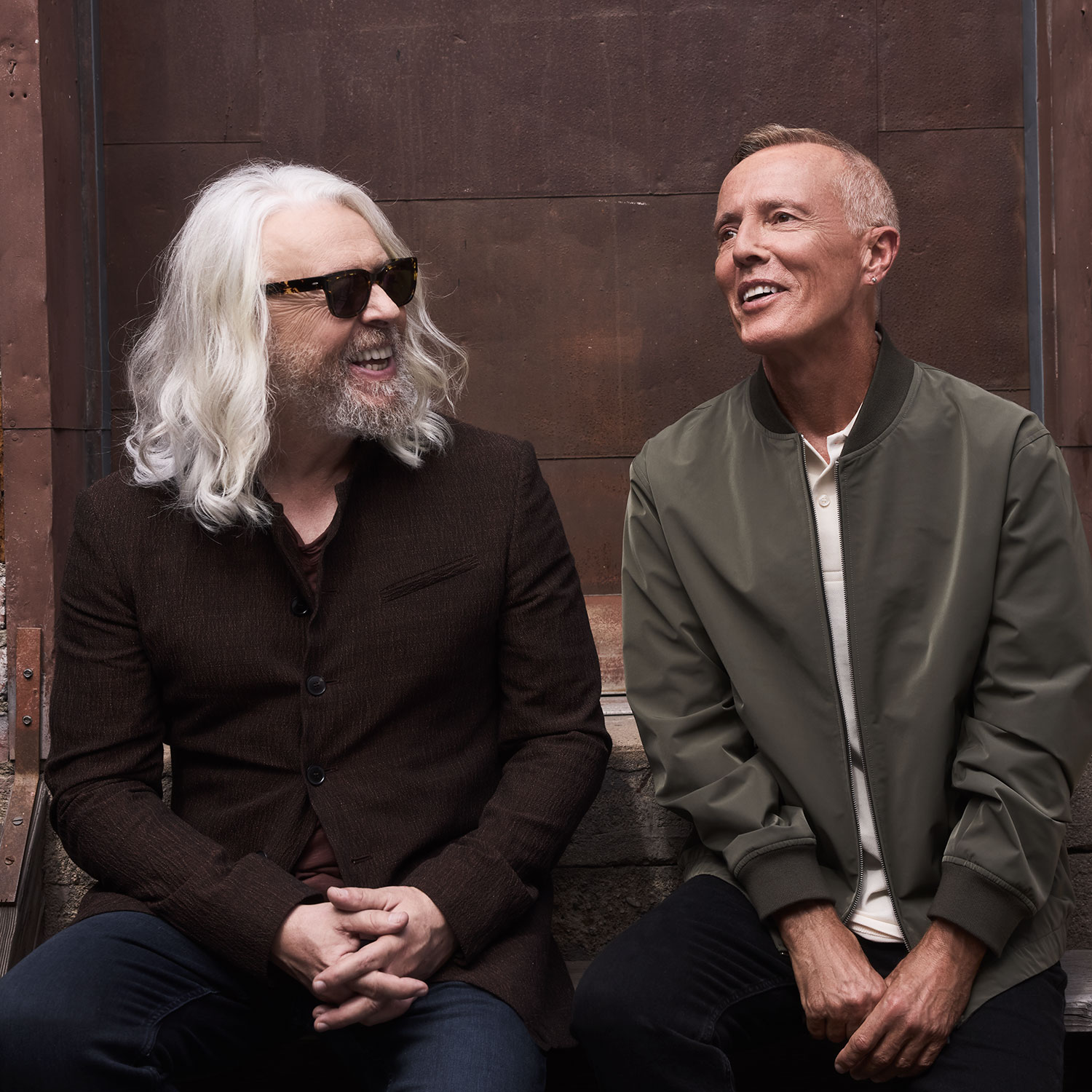
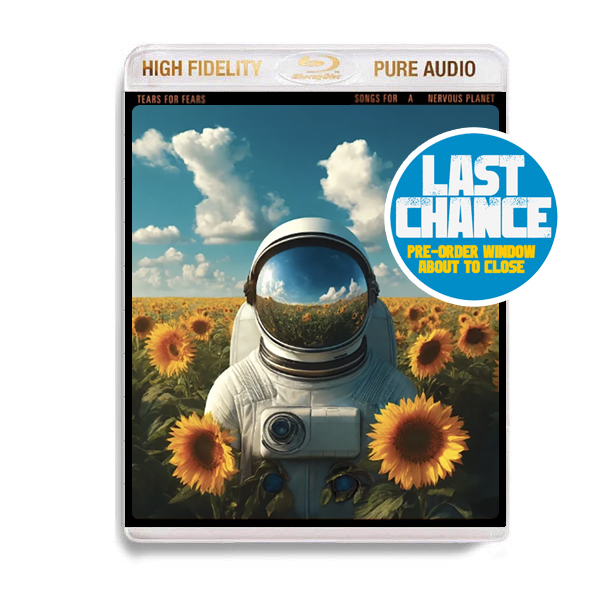
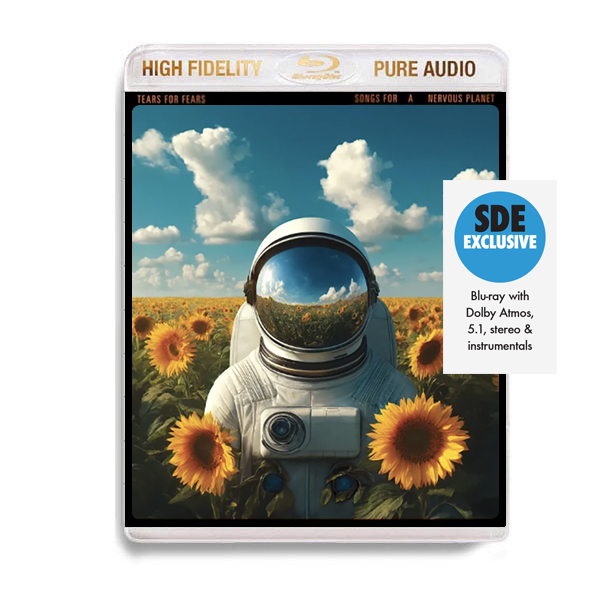
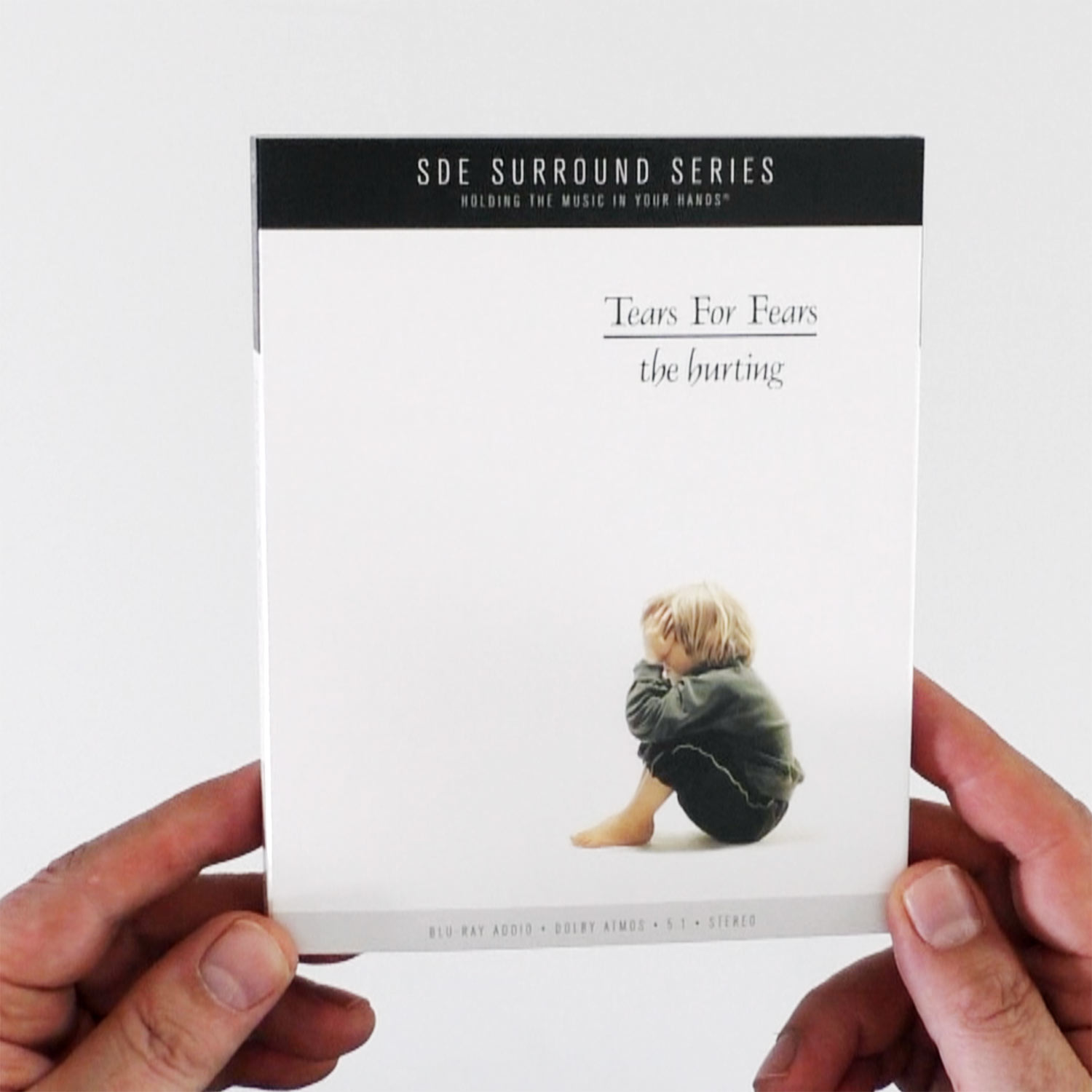
 SDEtv
SDEtv
By Paul Sinclair
122